OnePlus 9 photo showcase: how far OnePlus phone cameras have come in a year
Camera showdown: OnePlus 9 vs OnePlus 8T vs OnePlus 8
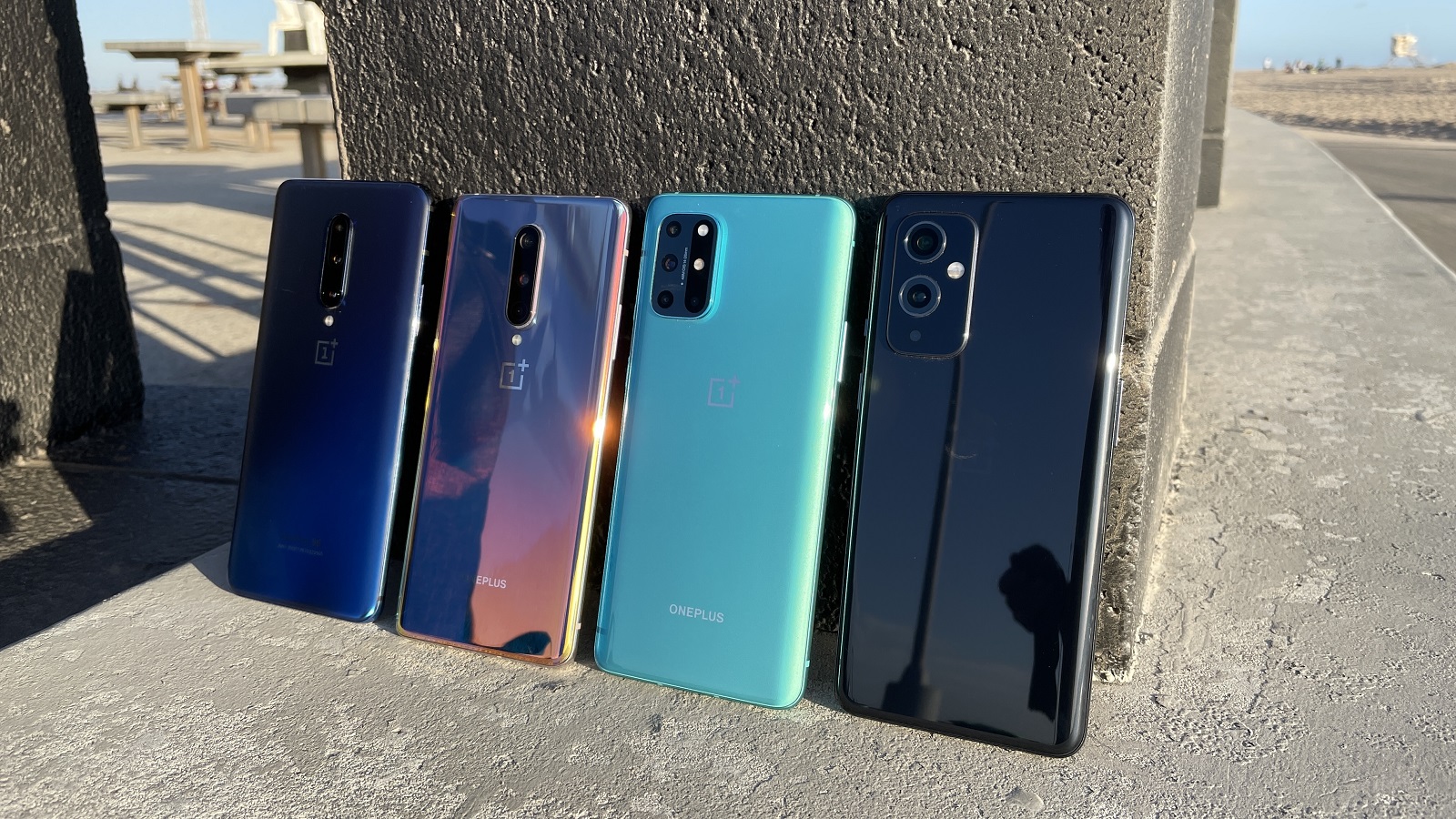
Sign up for breaking news, reviews, opinion, top tech deals, and more.
You are now subscribed
Your newsletter sign-up was successful
The just-launched OnePlus 9 and OnePlus 9 Pro have great specs and features, but the real advancement is OnePlus’ much-touted partnership with famed camera company Hasselblad to improve the new phones’ photo capabilities. So how superior are these photos compared to those taken by last year’s OnePlus phones?
Since we’re a year or two out from OnePlus phones packing Hasselblad lenses, we’re solely comparing software here: the OnePlus 9 benefits from Hasselblad’s color correction. Ideally, this results in more true-to-life colors in photos, and our initial experience verified those claims.
But we wanted to see exactly how the new phone’s cameras compared to its older predecessors. Read on for side-by-side comparisons between shots taken by the OnePlus 9, OnePlus 8T (released in October 2020), and OnePlus 8 (released in April 2020).
We’ll primarily be comparing the main cameras: the OnePlus 9 packs a 48MP f/1.8, 1/1.43” 1.12µm lens, while the OnePlus 8T and OnePlus 8 have the same 48MP f/1.8 1/2.0” 0.8µm with OIS.
But since the software applies to the front-facing camera, too, we’ll compare the selfie lenses as well: all three phones use the same 16 MP, f/2.4, 1/3.06", 1.0µm shooter.
If you needed a TL;DR, it’s this: across the board, the OnePlus 9 took the most balanced and sharply-detailed photos of the bunch, with the OnePlus 8T retaining some of that but having a more flattened palette. The OnePlus 8 produces much more vivid colors by default, but these feel excessively saturated in comparison, and consequently a lot of dark segments lose detail in deep shadow.
And as a final note, the OnePlus 8’s camera mode defaults to 4:3 resolution that needs to be switched up in settings, which we failed to do for this comparison and rest assured it irks us to no end – but the photo color and sharpness comparisons are still valid. Thanks for bearing with us.
Sign up for breaking news, reviews, opinion, top tech deals, and more.
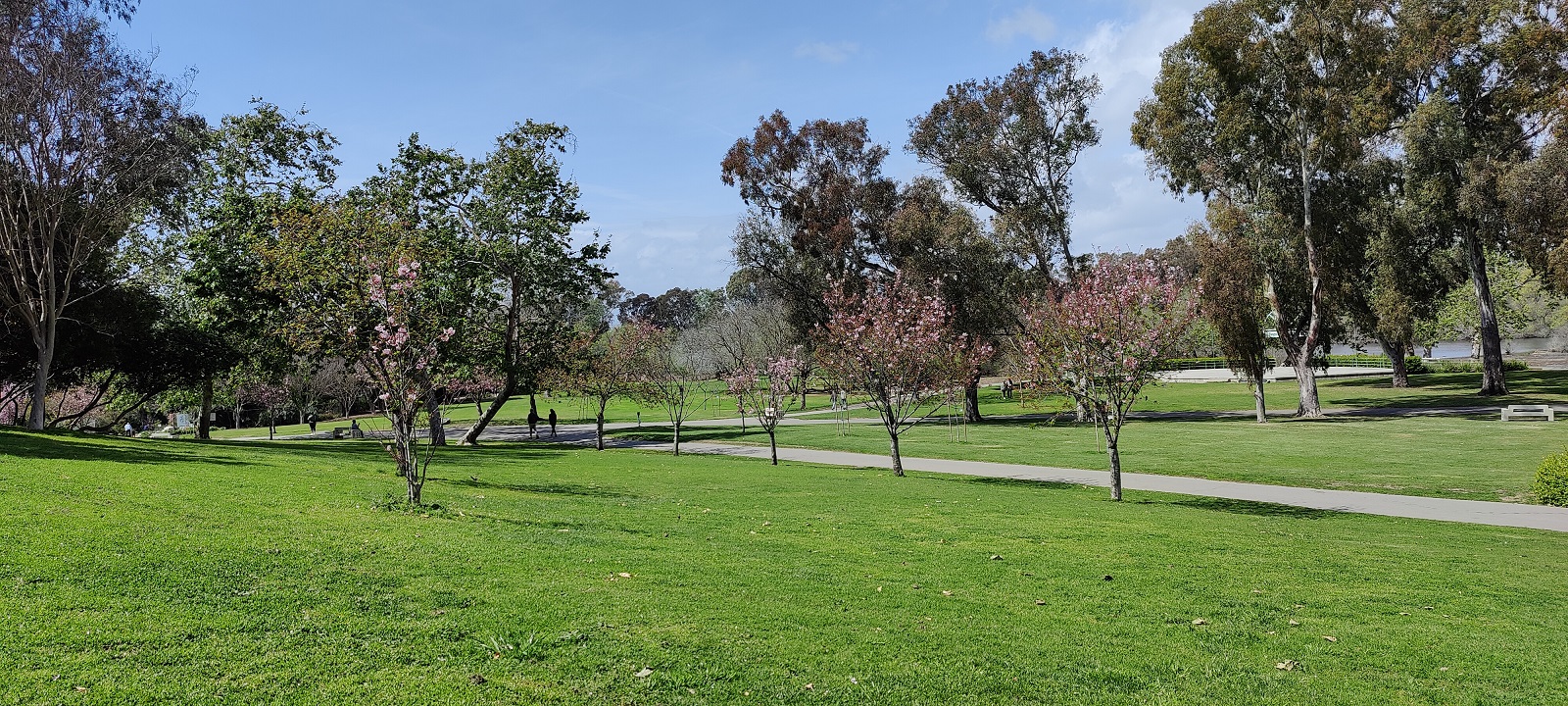
OnePlus 9
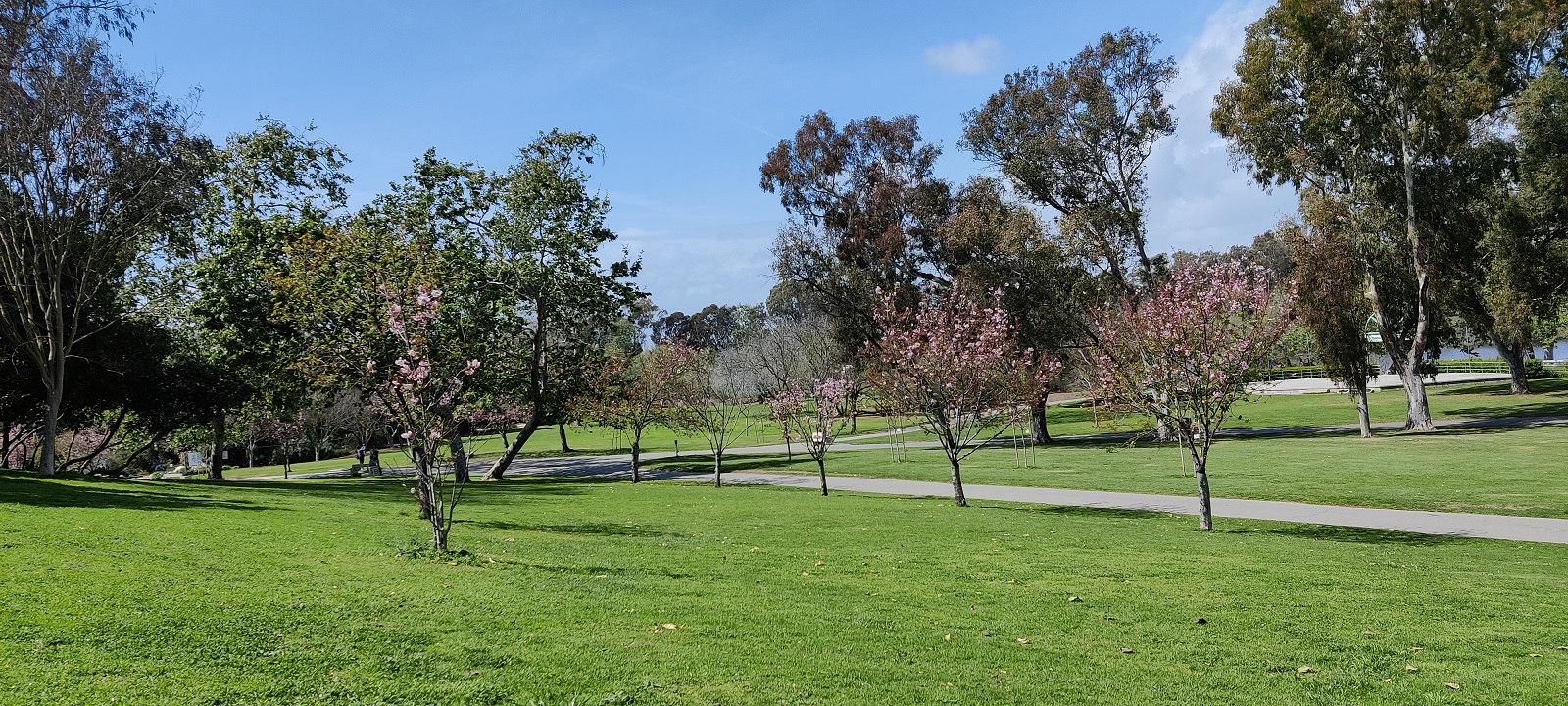
OnePlus 8T
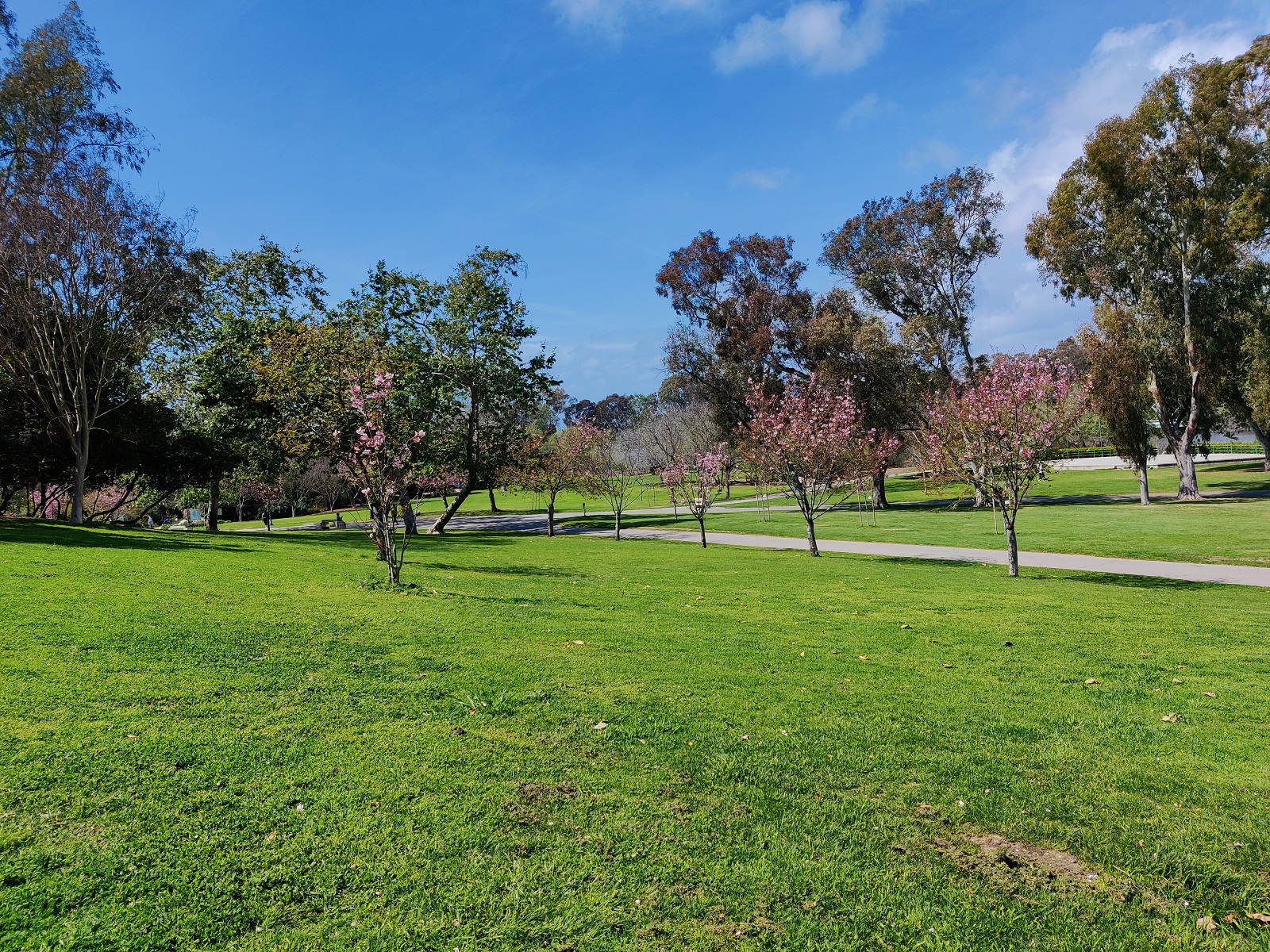
OnePlus 8
Park landscape comparison
Starting with a basic park landscape showing a mix of green grass/blue sky/pink blossom highlights, the OnePlus 9 shows the sharpest picture: check the grass in the foreground and leaves in the background, which retain more varying color than the 8T. The 8’s landscape is vivid, but the trees take on a more orange-ish hue than in the other photos. The clouds are all admirably detailed for how much haze was in the air.
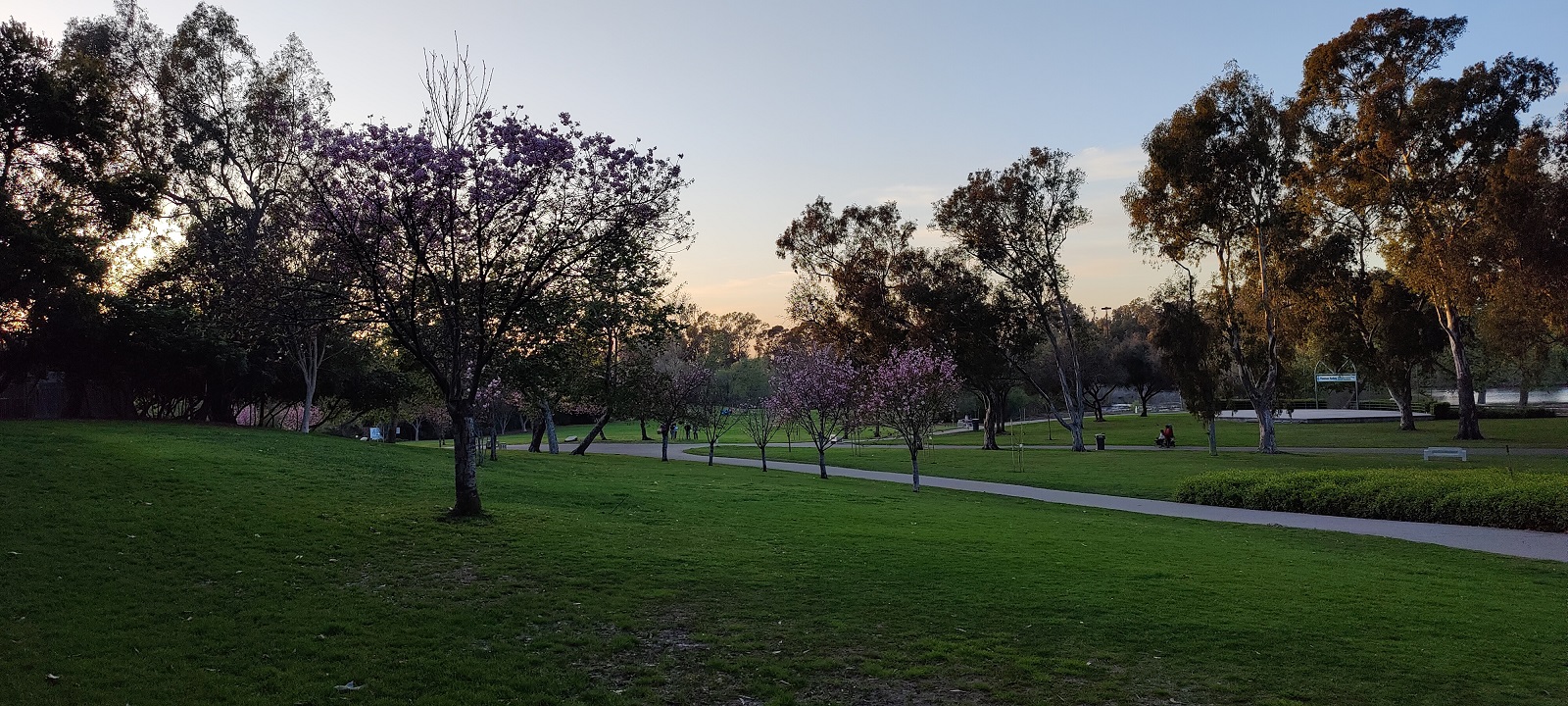
OnePlus 9
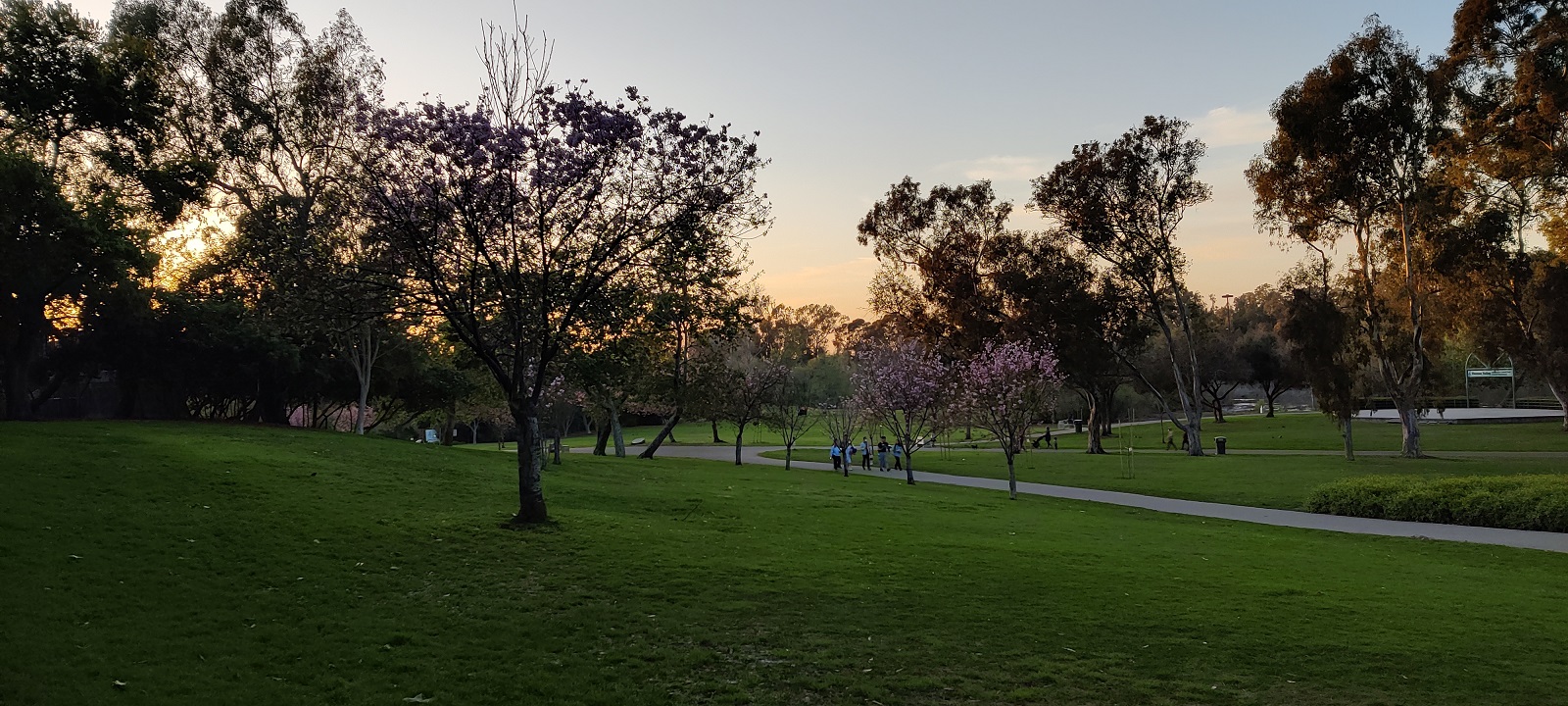
OnePlus 8T
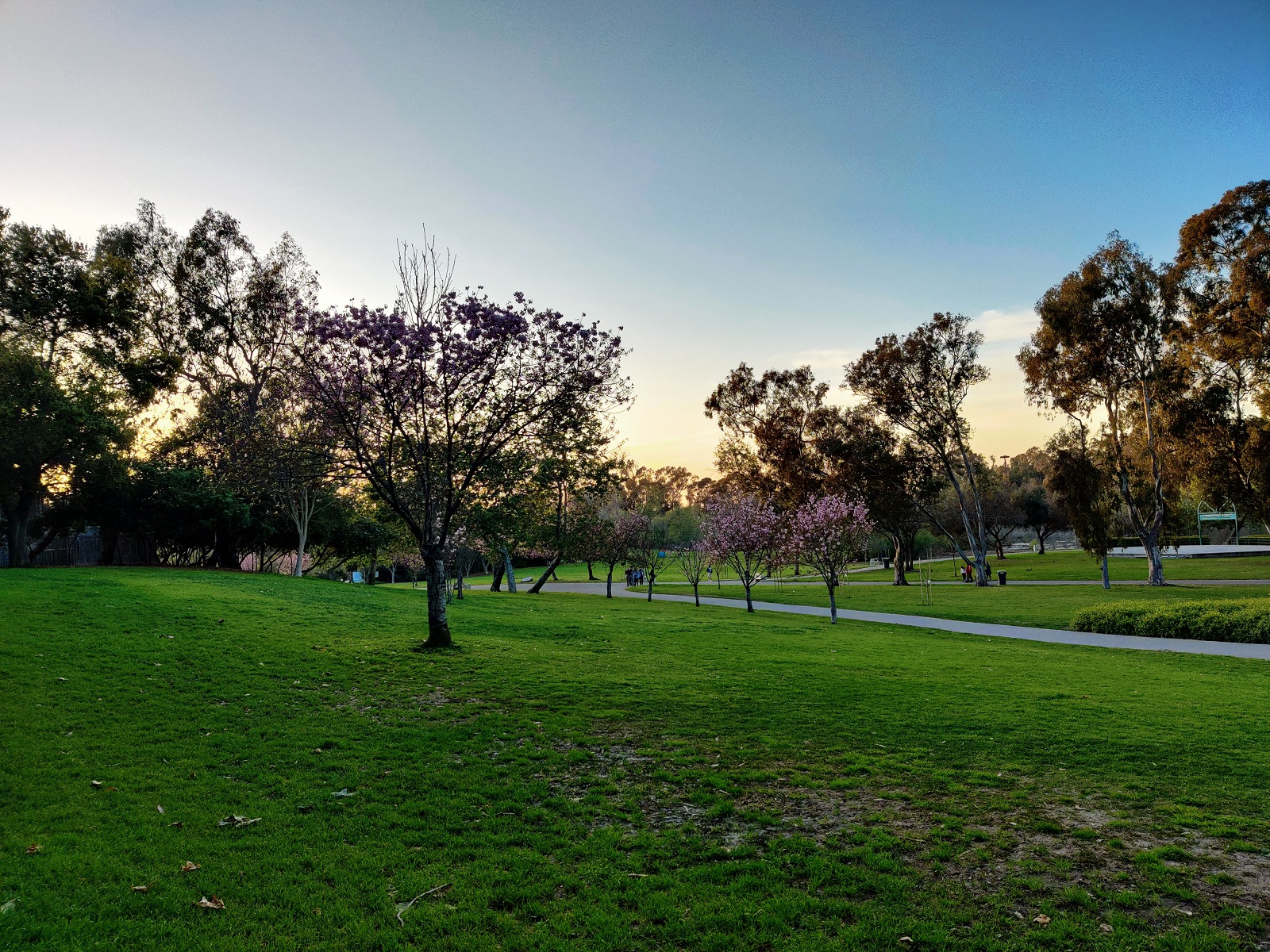
OnePlus 8
Park twilight
The same scene at dusk shows a bit more saturation in the photos of the 8T (and much more in the 8): the grass is an abnormally brighter green – which certainly makes it easier to see, but less true-to-life.
Note the sun poking through the tree line on the left, which is a moderate yellow in the 9 and so bright it illuminates the branches. To be clear, none of these are great photos, but at least the 9 captures a more even palette of colors, which we personally prefer.
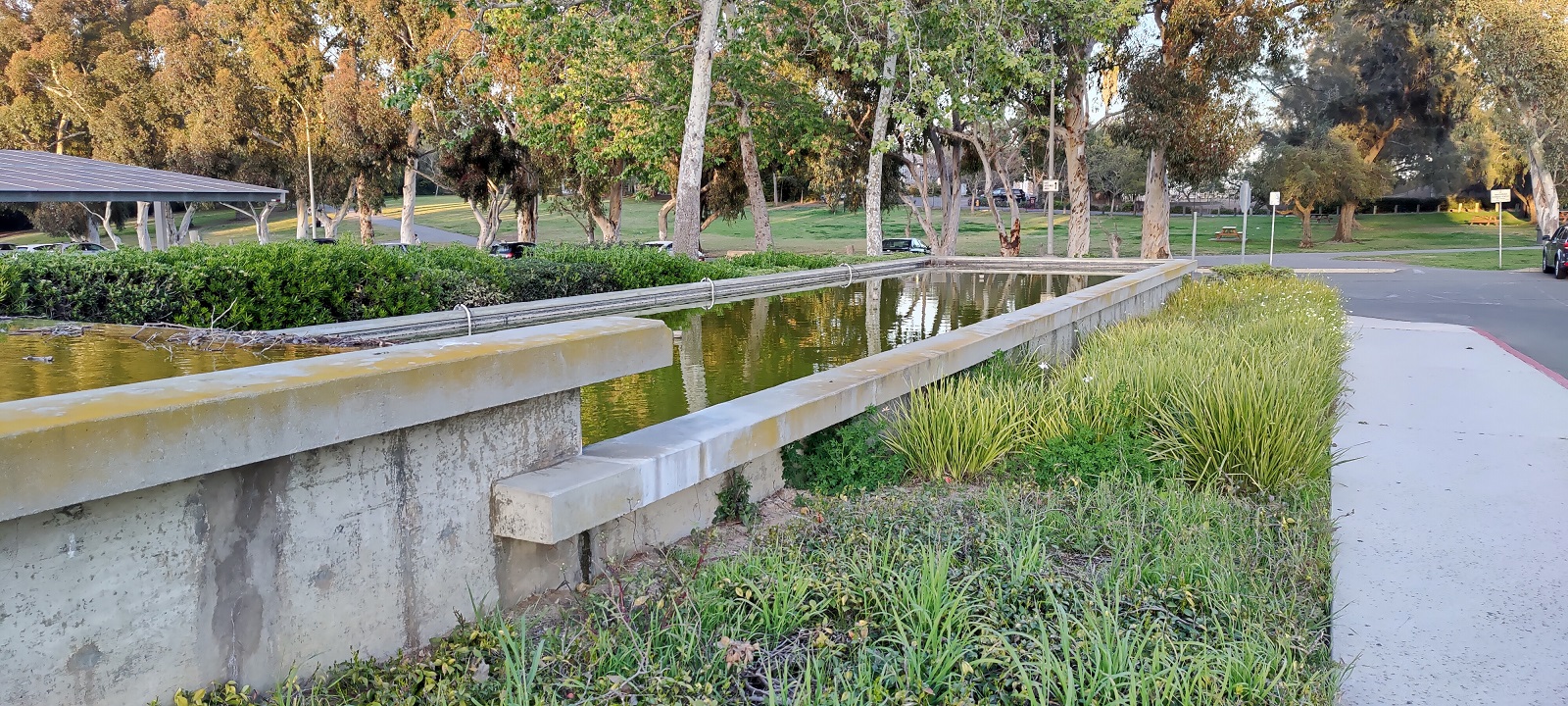
OnePlus 9
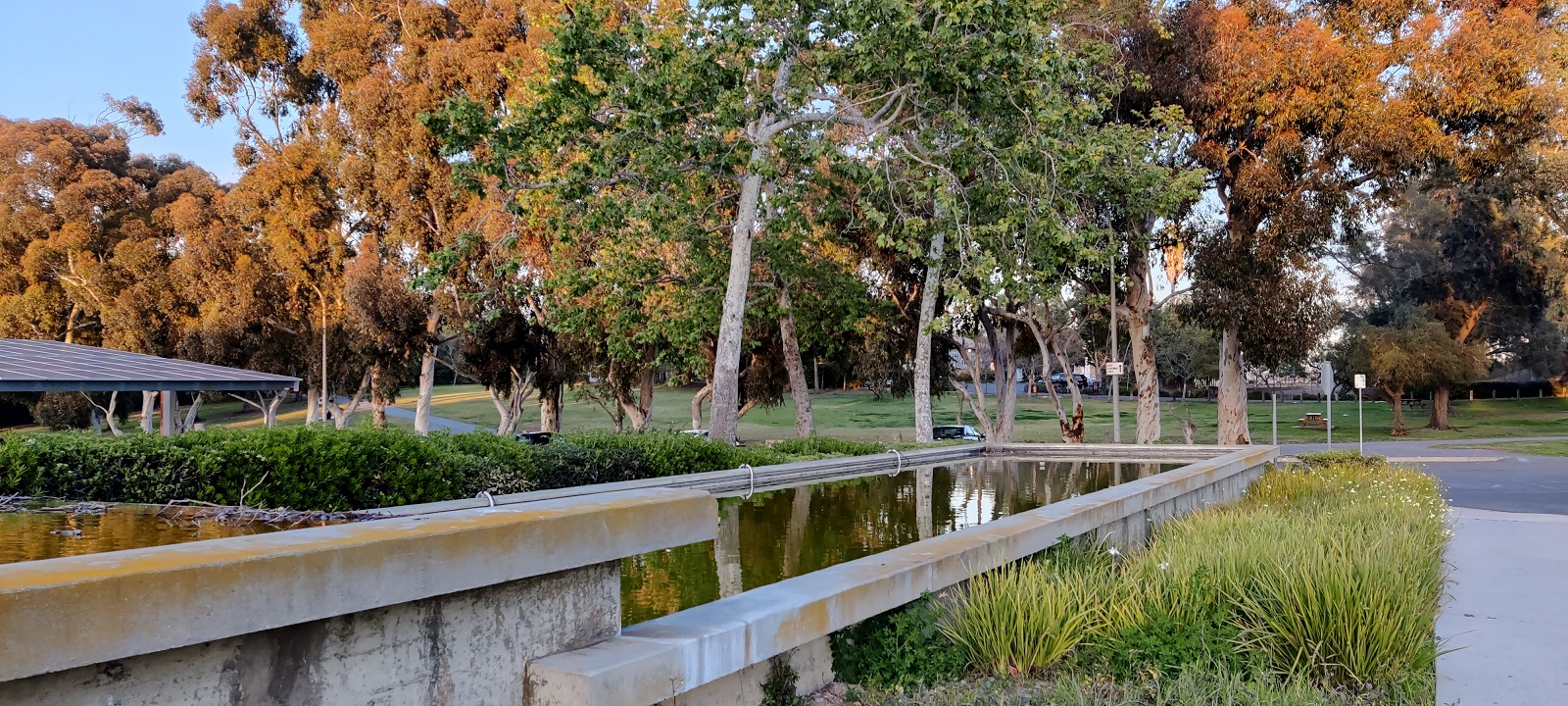
OnePlus 8T

OnePlus 8
Fountain twilight
Another sequence showing how the oversaturation in the 8T and 8 make colors pop, but cartoonishly so in comparison to the 9. Look at the loss in sharpness in the orangey moss streak on the corner of the concrete fountain edge as well as the foliage in the background trees.
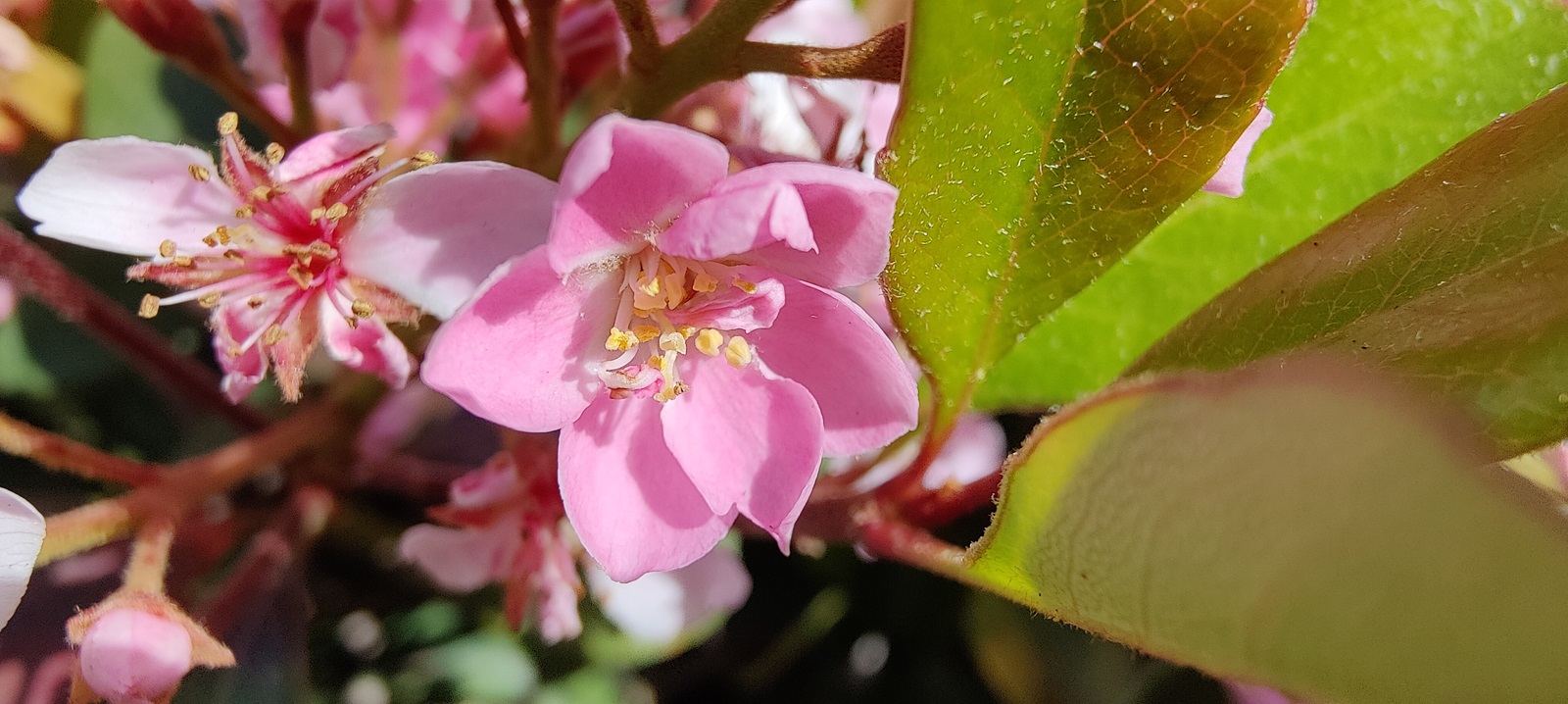
OnePlus 9
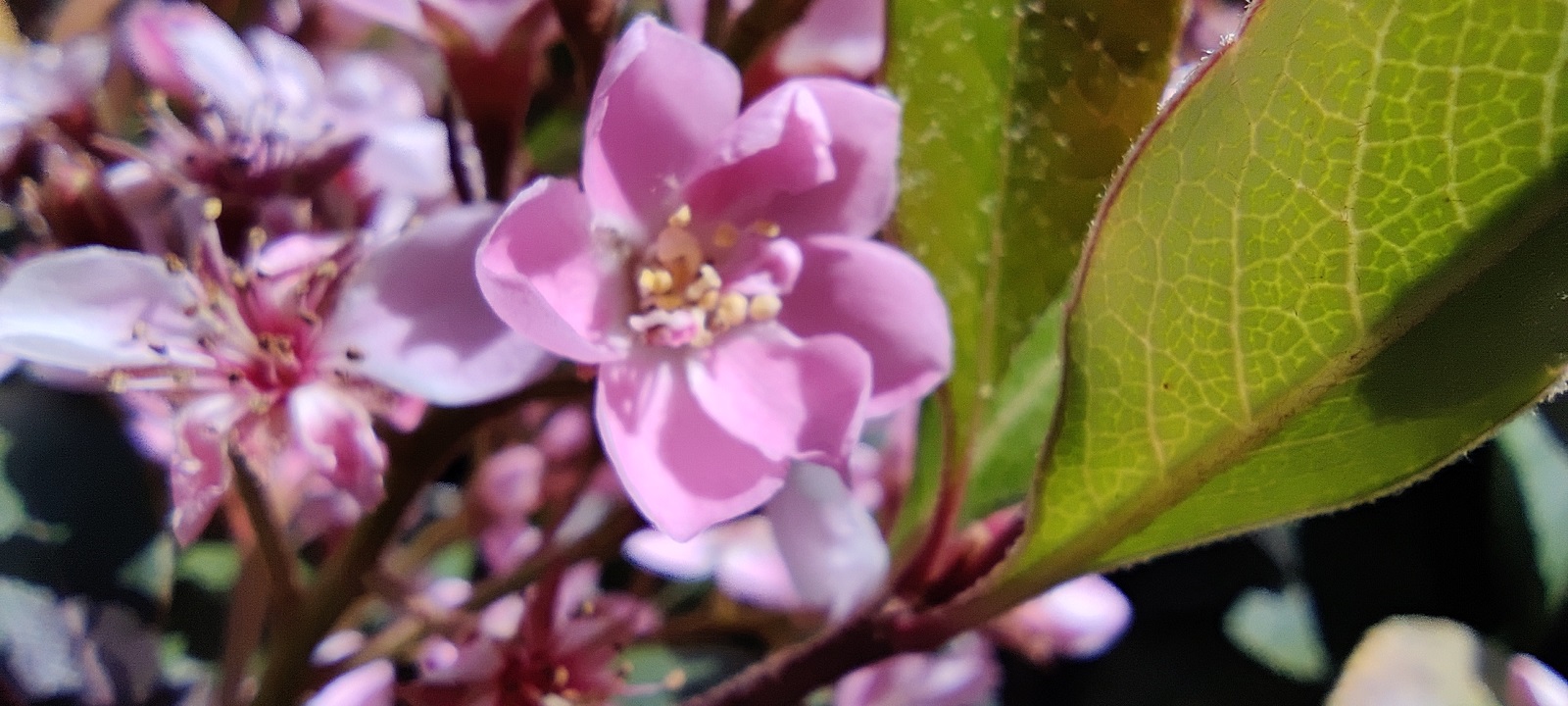
OnePlus 8T
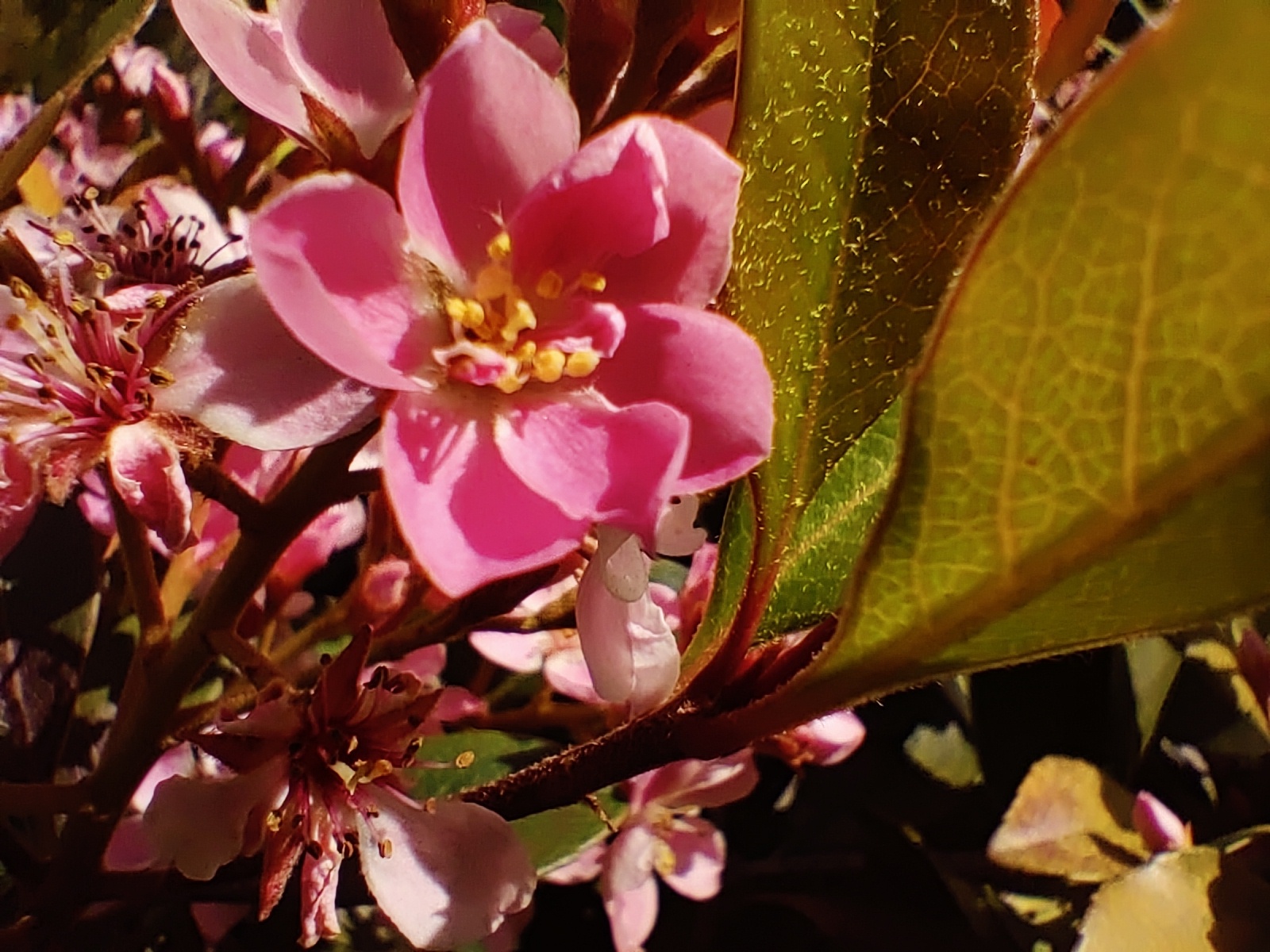
OnePlus 8
Flower macro
Okay, in a very big way, the 9 wins in a landslide because we got it to focus on what we were shooting at. But keep in mind that the other two phones have a dedicated macro camera and the 9 still shot a superior image with its 50MP ultra-wide lens (just tap the flower icon in the camera app for ‘macro mode’).
But even beyond the focus issue, the 9 has the best color balance, showing pale white stamen filaments and light yellow anther ends contrasted with the light pink petals, all of which look more vibrant than in the 8T and less over-warm than the 8. Great clarity on the leaf next to it, too.
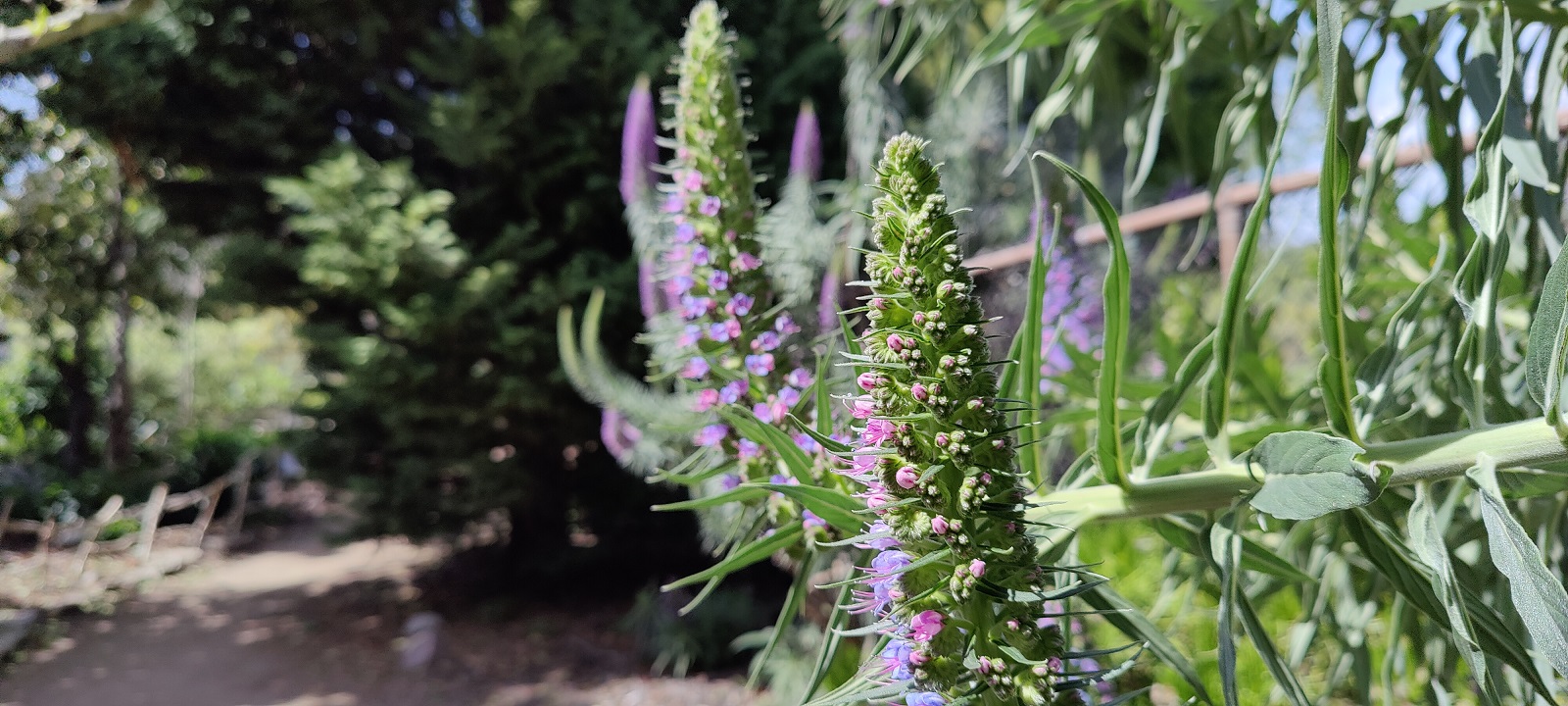
OnePlus 9
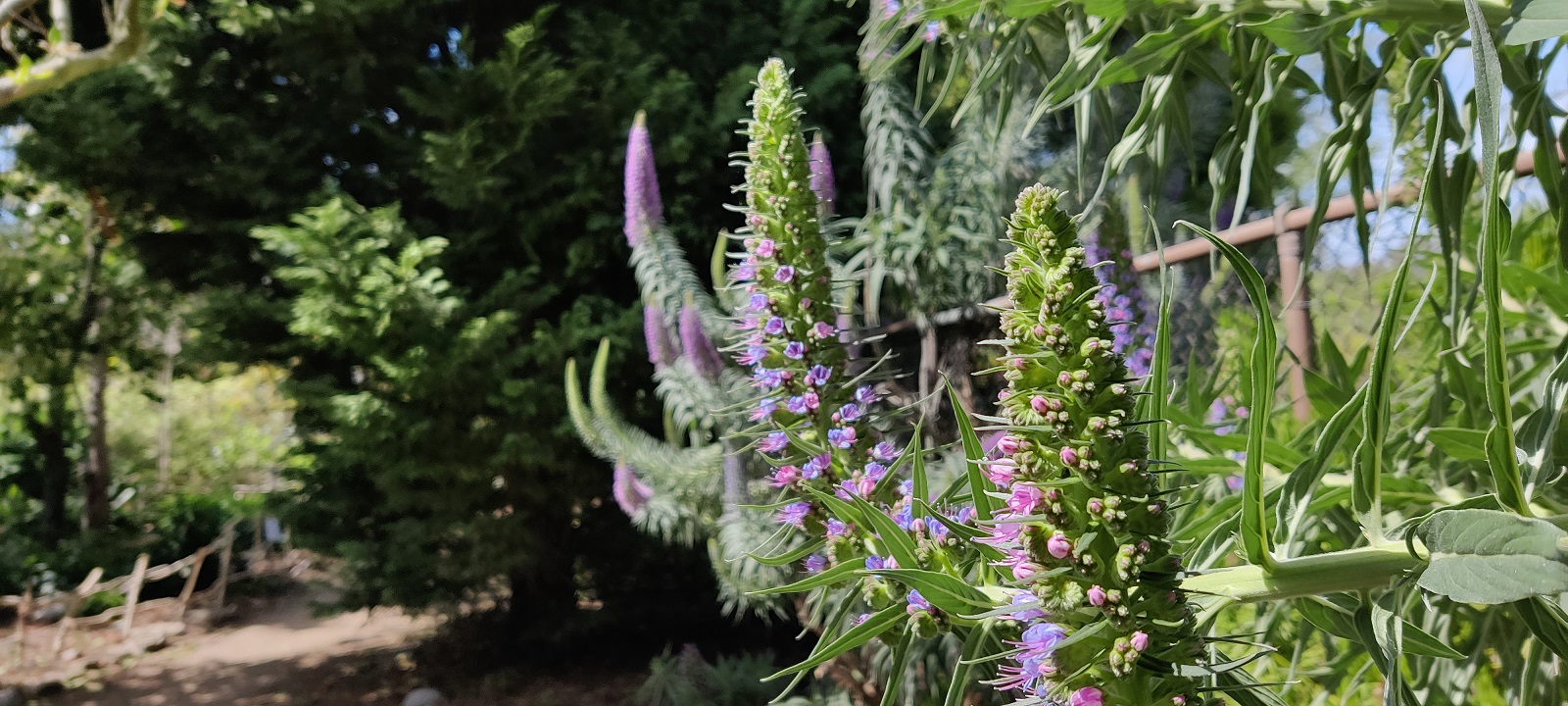
OnePlus 8T
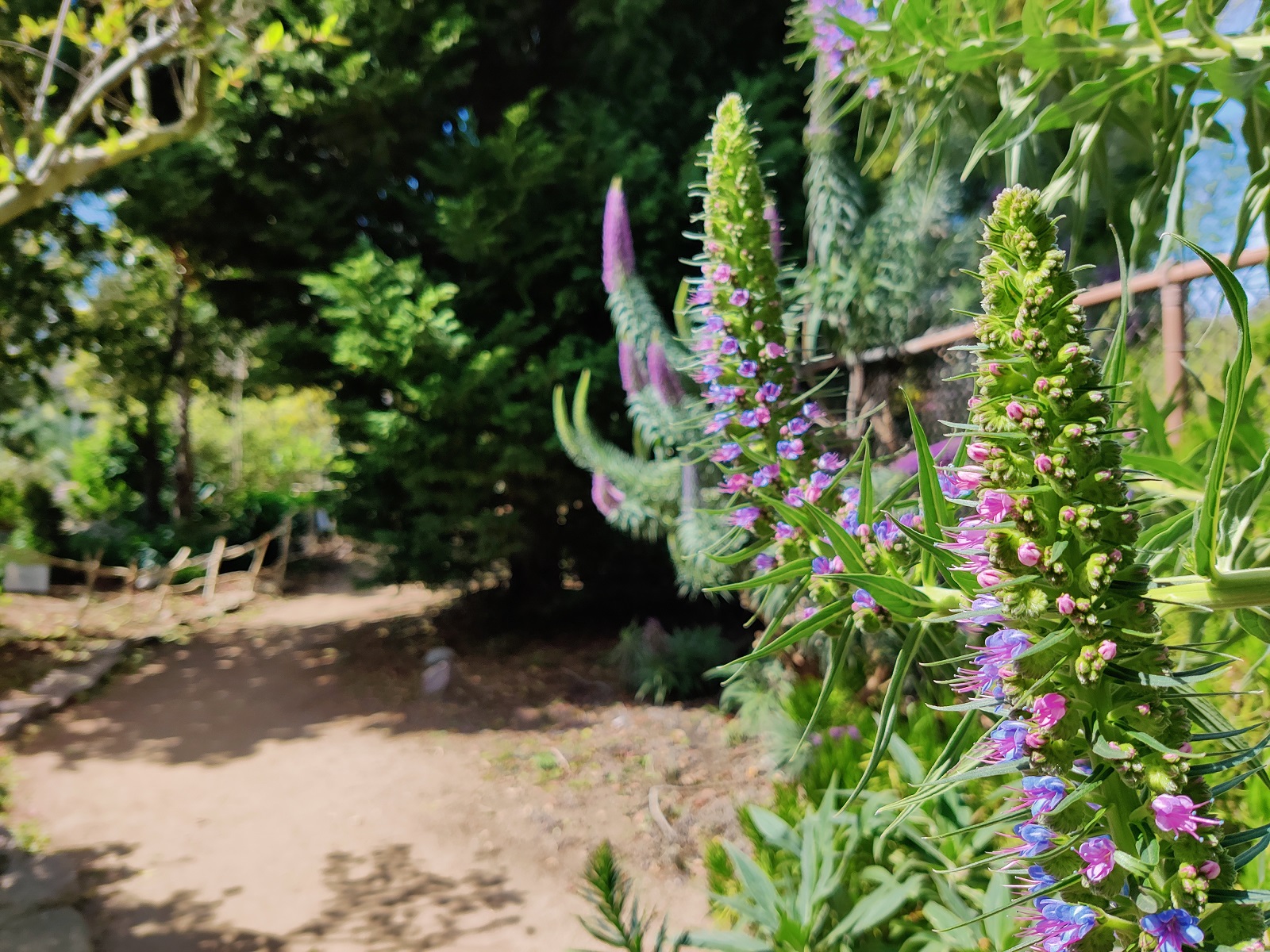
OnePlus 8
Depth effect
The 9 has slightly better color (less vivid green) and shadows as well as better depth stratification – look at the foreground flower vs. the fuzzy one behind versus the completely blurred pine branches in the background.

OnePlus 9
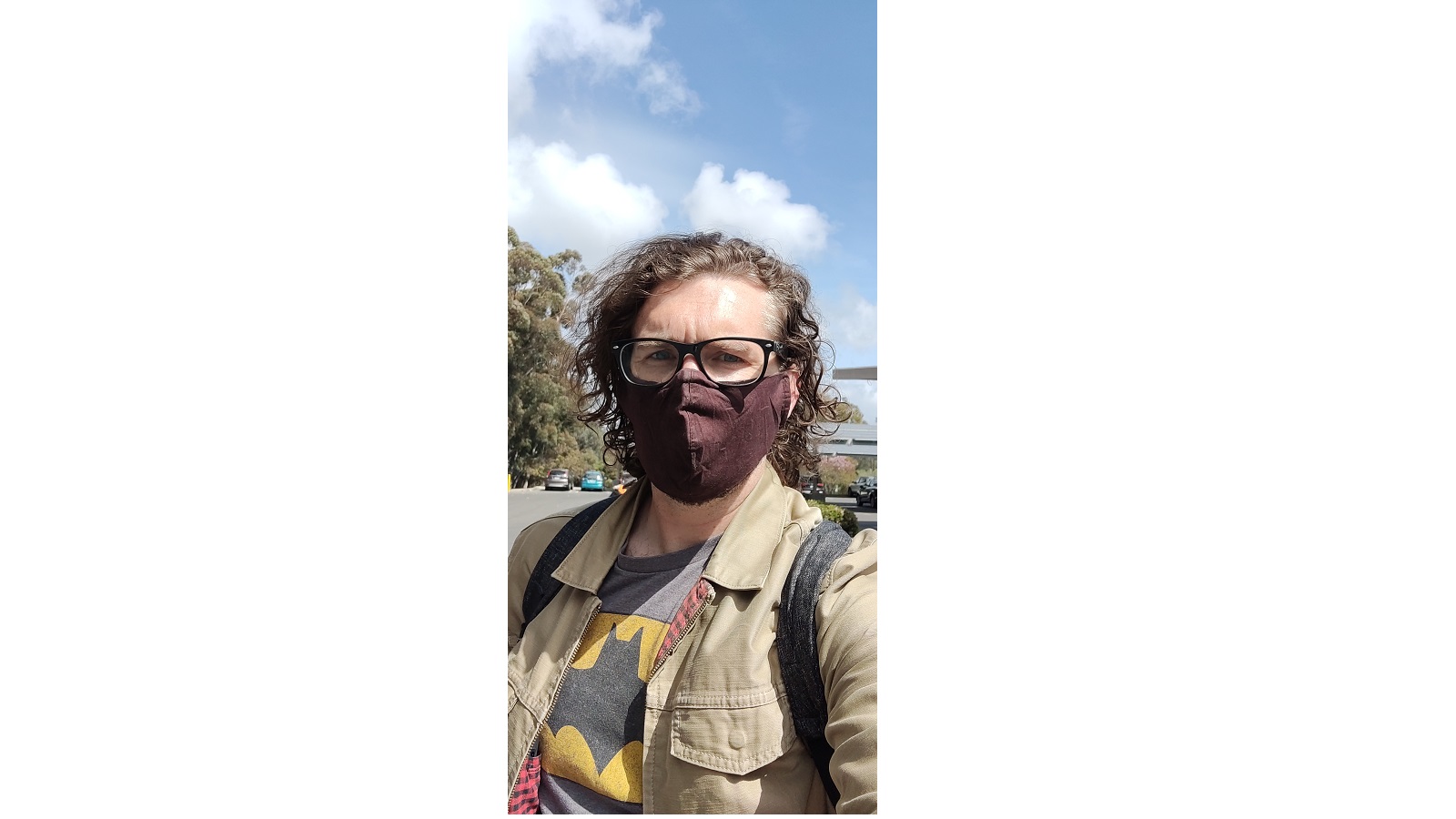
OnePlus 8T

OnePlus 8
Selfie
As mentioned in our review, the 9 takes exceedingly narrow selfies, as does the 8T, but the big difference is the toned-down reflection glare off bright surfaces (like, ahem, my forehead).
There’s also slightly richer color in the 9’s photo, which makes the 8T’s image look a bit washed out, while the 8 has a lot of detail compressed into the same tones when in shadow. This is the least we’ve seen the Hasselblad color correction come into play.
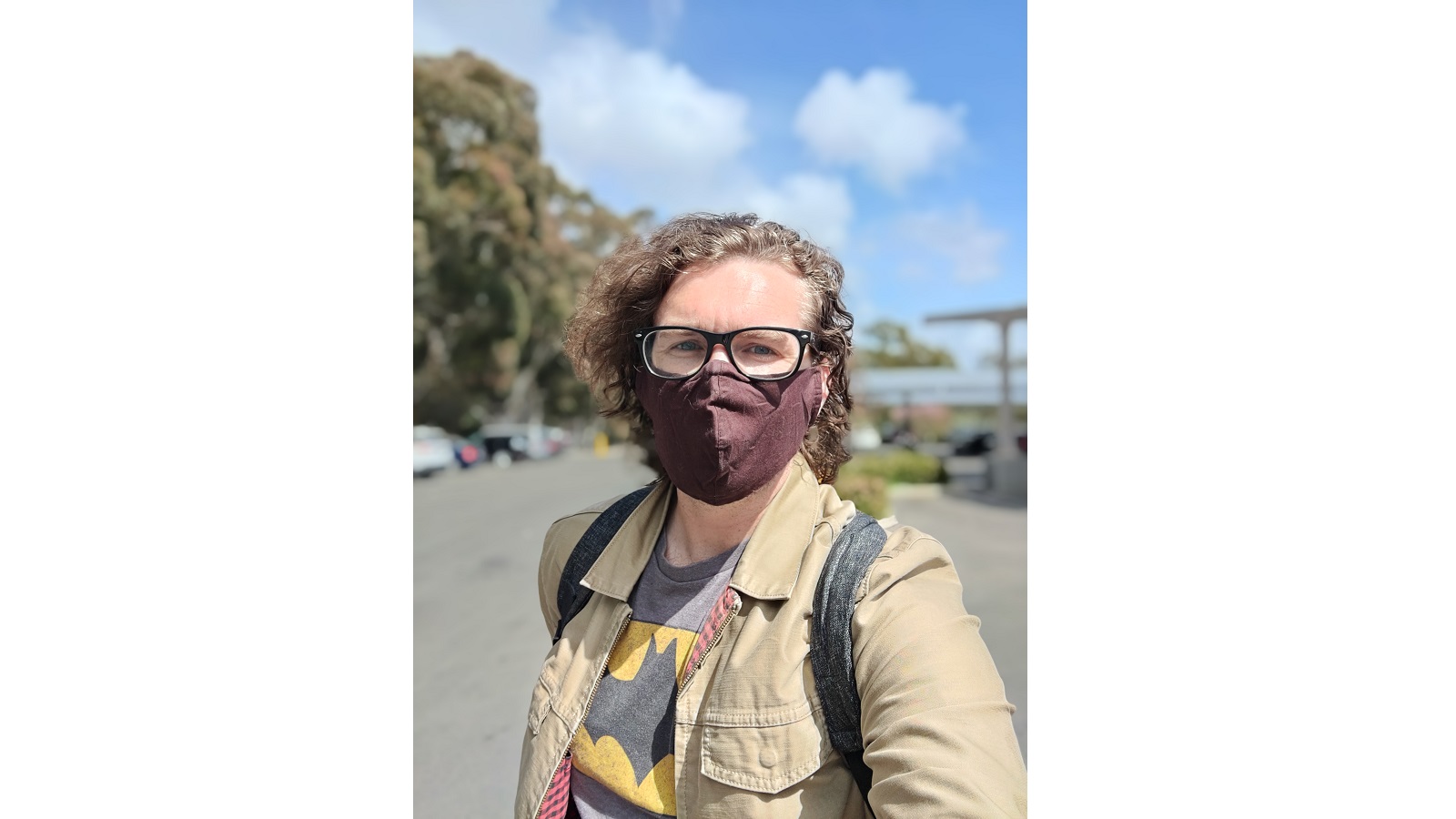
OnePlus 9
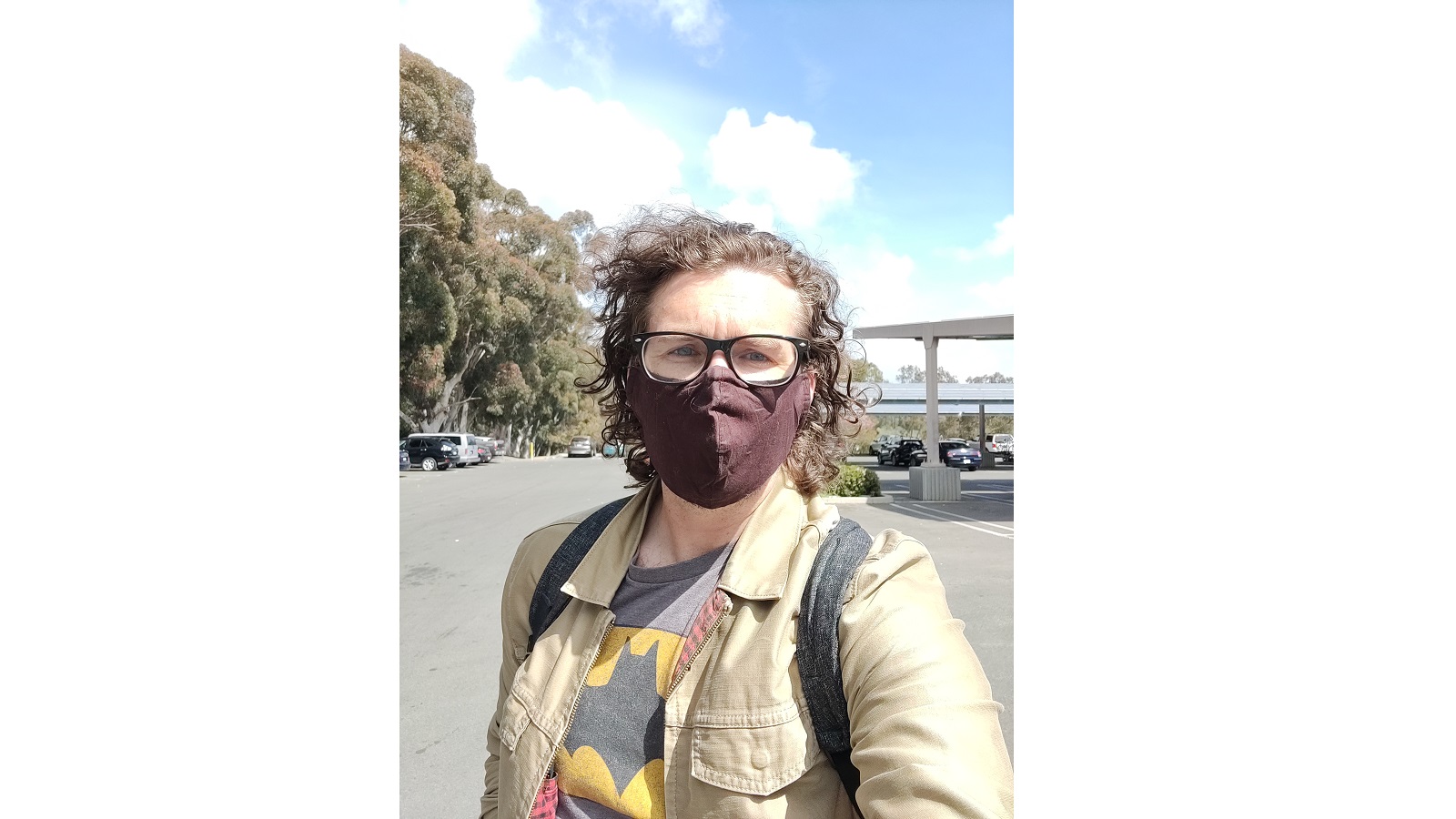
OnePlus 8T
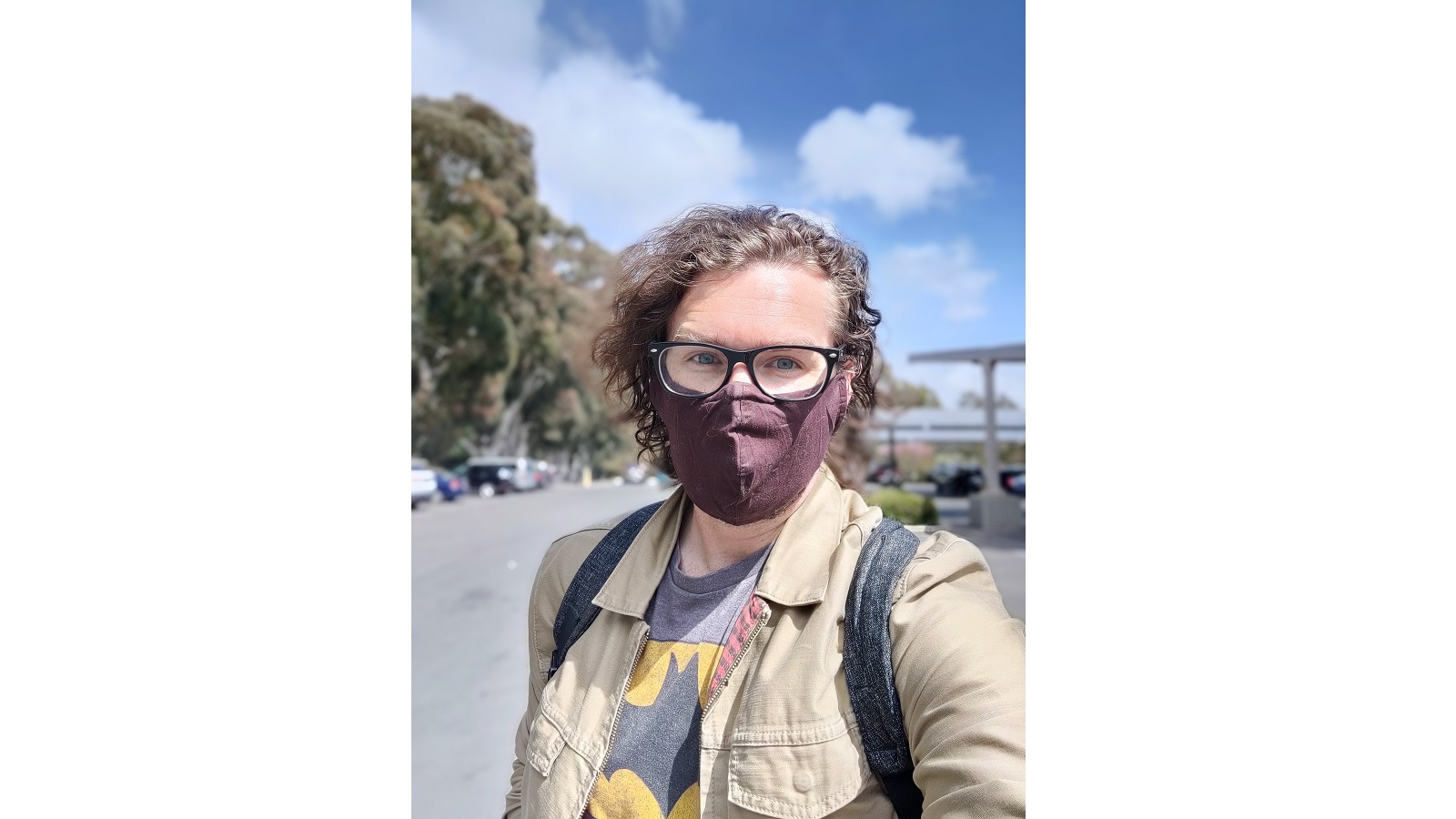
OnePlus 8
Portrait selfie
The 9 was the clear winner, though the 8T seemingly took a dive by not focusing for a depth effect at all – but it goes to show how OnePlus’ phones front-facing cameras can get blown out if they accidentally focus on too white a subject (the clouds, not me, I swear).
Still, the 9 has good color balance and less blinding shine (look around the eyes, where there’s still color in the lit cheek versus the completely white cheek in the 8 photo).

OnePlus 9

OnePlus 8T

OnePlus 8
Beach sunset
We thought we'd end on a beach sunset. Again, the 8T has a more uniformly warm palette (and excessively so on the 8), whereas the 9 feels lit by the sun but not overly yellowed by it – note the difference in the foreground grass, pole fence, and palm trees, which are all noticeably warmer. The 9 has a more even color distribution, including more nuanced shadow.
- Stay on top of tech news with the TechRadar newsletter

David is now a mobile reporter at Cnet. Formerly Mobile Editor, US for TechRadar, he covered phones, tablets, and wearables. He still thinks the iPhone 4 is the best-looking smartphone ever made. He's most interested in technology, gaming and culture – and where they overlap and change our lives. His current beat explores how our on-the-go existence is affected by new gadgets, carrier coverage expansions, and corporate strategy shifts.